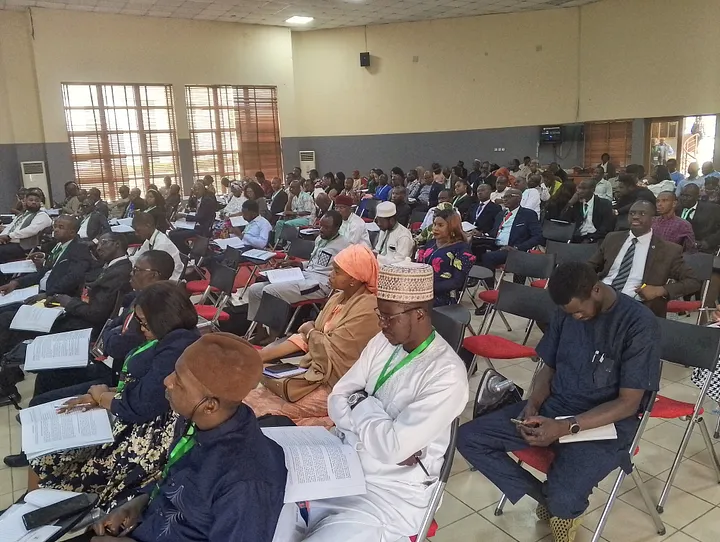
by Ogbeni Olawale Dawodu
The National Judicial Institute (NJI) recently hosted a landmark symposium for media and judicial correspondents, emphasizing the need for collaboration to navigate legal complexities in court reporting. Themed “Building a Stronger Media/Judiciary Collaboration”, the event fostered discussions on the intersection of judicial integrity, media freedom, and public trust.
Hon. Justice Salisu Garba Abdullahi, Administrator of the NJI, underscored the importance of synergy between the judiciary and the media. “In a democracy, you need to have a strong judicial system, and you need a free press,” he stated, emphasizing their joint role in bolstering public trust and confidence in the judicial system.
The symposium featured an array of expert-led sessions.
Topics such as Judicial Communication and Correspondence and Reporting the Judiciary: Challenges and Opportunities highlighted the importance of transparency and accountability. Meanwhile, Digital Reporting Tools: Using Technology for Efficient and Effective Legal Journalism explored modern tools for enhancing legal reporting.

A major highlight was the paper presentation by Dr. Lemmy Ughegbe, Executive Director of the Men Against Rape Foundation.
His paper, Court Reporting – Protecting Vulnerable Persons in Legal Proceedings, addressed the ethical and legal responsibilities of journalists. “Minors, survivors of sexual and gender-based violence (SGBV), persons with disabilities, and the elderly are at high risk of stigmatization and retraumatization due to unethical reporting practices. Their protection should be paramount,” Dr. Ughegbe emphasized.
He highlighted laws such as the Child Rights Act (2003) and the Violence Against Persons (Prohibition) Act (2015), which prohibit revealing survivors’ identities. “Unfortunately, these laws are often flouted in pursuit of sensational headlines, leaving survivors exposed and vulnerable,” he lamented.

Dr. Ughegbe also provided actionable recommendations, urging the judiciary to organize workshops on confidentiality and ethical standards while establishing clear court reporting guidelines. For journalists, he advocated using pseudonyms, avoiding identifiable details, and consulting psychologists to ensure trauma-sensitive reporting. He also encouraged leveraging AI tools to flag harmful language.
To illustrate ethical challenges, Dr. Ughegbe examined two prominent cases: – The Lagos SGBV Incident (2020): Some irresponsibly revealed the identity of a minor survivor, sparking outrage. Others, however, focused on systemic failures, setting an ethical standard.
– Keren-Happuch Akpagher’s Case (2021): Ethical reporting highlighted institutional accountability, while sensationalist coverage caused additional distress to the family.
“These cases show how much harm unethical reporting can cause,” Ughegbe emphasized. “We need to do better as a society.”
Veteran broadcaster Mr. Femi Okeowo proposed integrating media relationships into the NJI curriculum to foster deeper understanding between journalists and judicial officers. “Effective reporting of judicial activities requires adequate training, which can only come from strong relationships,” he said.
Dr. Uche Akunnebu of Media Pen Academy added, “The courtroom is a place of respect, with strict rules that must be adhered to. Media practitioners must understand and uphold these principles.”
The symposium concluded with a shared commitment among stakeholders to harmonize the judiciary and journalism. “The media plays a vital role in shaping public discourse,” Ughegbe noted. “By adhering to ethical and legal frameworks, we can ensure justice while protecting the most vulnerable among us.”
The event serves as a clarion call for systemic reforms, urging all parties to prioritize dignity, accuracy, and accountability in the justice system.
As Justice Abdullahi noted, “A harmonious relationship between the judiciary and the media is essential for fostering a just and transparent society.”



